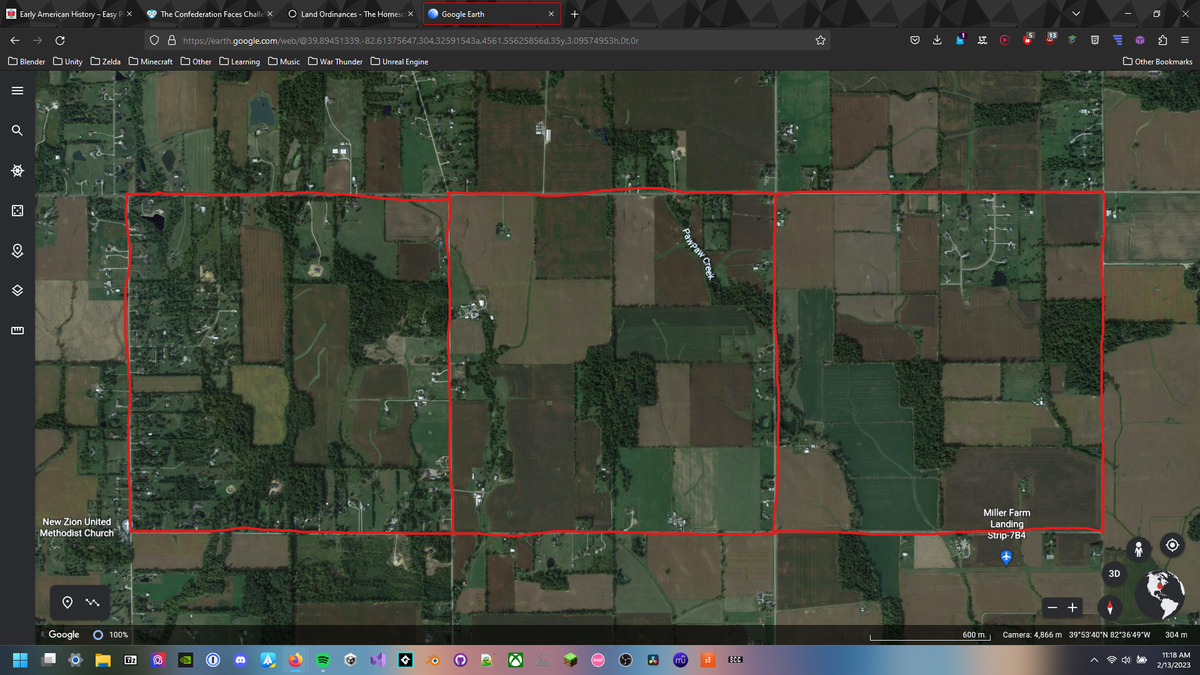Land Ordinances

America was broke! Believe it or not, the Revolutionary War was costly and the new United States of America couldn't afford it!
The British Navigation Acts were a set of laws that prohibited British ports from trading with ships from other nations. Since America was now one of those "other nations", ports in the West Indies were unable to trade with them, and as a result, American currency became deprecated.
There were many different suggestions on how to resolve this issue, George Washington even suggesting taxation, but this idea was rejected by Congress. So, the depression continued, affecting people of all classes, from farmers who were facing low crop prices to merchants who weren't allowed to trade in foreign ports.
However, Congress had one more money-raising scheme up their sleeves: the sale of land that didn't belong to them! In 1874, Thomas Jefferson wrote an Ordinance that permitted colonies in the West to become states if their population matched the smallest U.S. state.
Congress planned to sell the Old Northwest (Ohio, Illinois, Indiana, Michigan, and Wisconsin) at the promising price of $1 per acre, in lots of 640 acres apiece. However, most people couldn't afford this, so Congress later offered the land in smaller lots.




